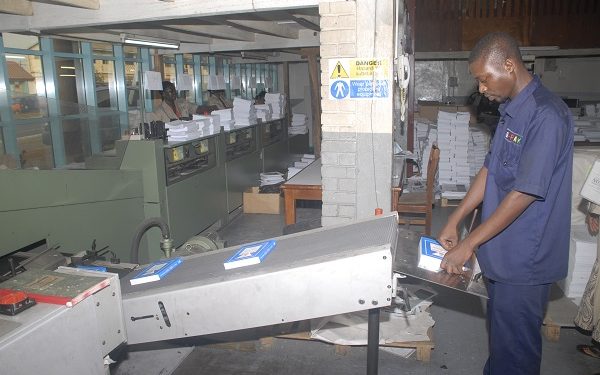GPPCA Applauds Government’s Directive for Local Printers and Packaging Firms to undertake Printing of Textbooks in Ghana
The Ghana Printers and Paper Converters Association (GPPCA) has lauded President John Dramani Mahama for his recent announcement to end the long-standing textbook shortage in Ghana through a comprehensive education policy reform that prioritizes the local printing industry.
In a statement issued by the Association, the GPPCA welcomed the President’s “Education Revolution” initiative, which promises to ensure that all textbooks for Ghana’s new curriculum are printed locally. The President, during the announcement, declared: “This no-textbook phenomenon will end this year … these textbooks are going to be printed by Ghanaian printers so that money stays here in Ghana.”
According to the Association, this policy aligns perfectly with a 2014 GPPCA-commissioned study that examined the dynamics of Ghana’s local printing industry in comparison to its foreign counterparts. The study highlighted regulatory constraints, demand trends, competitive gaps, and recommendations for attracting investment into the sector.
As part of its policy advocacy, the GPPCA reiterated five key recommendations for government action:
Removal of all pre-production tariffs to enhance competitiveness of local printing firms.
Adoption of the UNESCO Convention provision that allows governments to suspend trade agreements if imports disrupt the local printing industry.
Introduction of levies on imported books to stabilize domestic market conditions.
Full enforcement of the 2005 Textbook Policy, ensuring a minimum of 60% of government printing contracts go to local firms.
Development of a fair pricing formula to protect both government and local printers from economic losses.
The Association further emphasized that the local printing and packaging industry offers significant synergy with the government’s proposed 24-hour economy. According to the GPPCA, most firms within the sector are under-utilized and possess the capacity to operate round-the-clock, creating jobs and boosting economic activity.
“Employment in the industry could increase by 40% if the existing printing contracts currently outsourced abroad were redirected to capable local firms,” the statement noted.
The Association also highlighted the broader benefits of investing in the sector, citing potential for job creation, tax mobilization, profitability, and regional export growth, particularly into the West African market.
As a way forward, the GPPCA is calling on government to:
Pass a presidential directive, endorsed by Parliament, mandating the exclusive use of local factories for all government and institutional printing needs.
Cancel all tax exemptions for companies that import finished printed materials.
Create an enabling environment for local printers and converters to expand operations, boost employment, and contribute more meaningfully to national development.
The Association reaffirmed its commitment to working closely with the Ministry of Finance, the Ministry of Education, and other stakeholders to sustain momentum for what it describes as a “home-grown solution to revamp the education sector.”
“We once again appreciate the new direction of hope from the Presidency, and remain available to engage further in realizing the full potential of this initiative,” the statement concluded.








